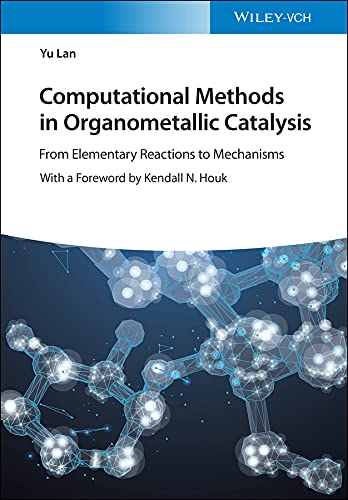

Most ebook files are in PDF format, so you can easily read them using various software such as Foxit Reader or directly on the Google Chrome browser.
Some ebook files are released by publishers in other formats such as .awz, .mobi, .epub, .fb2, etc. You may need to install specific software to read these formats on mobile/PC, such as Calibre.
Please read the tutorial at this link: https://ebookbell.com/faq
We offer FREE conversion to the popular formats you request; however, this may take some time. Therefore, right after payment, please email us, and we will try to provide the service as quickly as possible.
For some exceptional file formats or broken links (if any), please refrain from opening any disputes. Instead, email us first, and we will try to assist within a maximum of 6 hours.
EbookBell Team

5.0
110 reviewsDiscover recent advances in the mechanistic study of organometallic catalysis
In Computational Methods in Organometallic Catalysis: From Elementary Reactions to Mechanisms, distinguished chemist and author Yu Lan delivers a synthesis of the use of calculation methods and experimental techniques to improve the efficiency of reaction and yield of product and to uncover the factors that control the selectivity of product. Providing not only a theoretical overview of organometallic catalysis, the book also describes computational studies for the mechanism of transition-metal-assisted reactions.
You’ll learn about Ni-, Pd-, Pt-, Co-, Rh-, Ir-, Fe-, Ru-, Mn-, Cu-, Ag-, and Au- catalysis. You’ll also discover many of the experimental and theoretical advances in organometallic catalysis reported in the recent literature. The book summarizes and generalizes the advances made in the mechanistic study of organometallic catalysis.
Readers will also benefit from the inclusion of:
Perfect for organic, catalytic, complex, and structural chemists, Computational Methods in Organometallic Catalysis will also earn a place in the libraries of theoretical chemists seeking a one-stop organometallic catalysis resource with a focus on the mechanism of transition-metal-assisted reactions.